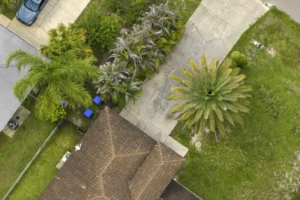Growing up in the 1960s, I was taught to always speak out against injustice. Recently, I felt compelled to share my concerns in a letter to the editor of TCPalm about a troubling situation I encountered as a realtor here in Indian River County—the predatory practices of some solar companies. My experience involved an 84-year-old woman, dependent on oxygen, who unknowingly signed a 25-year lease for solar panels.
To my surprise, my letter caught the attention of Martin Jacobson from the Senior vs. Crime project, a special initiative of the Florida Attorney General’s Office. He reached out to me, affirming that these predatory practices by some solar companies are real and significant, which prompted me to share my experience with you. Below is the letter I sent to the editor.
Letter to the Editor
Dear Editor,
I am writing to bring attention to a concerning issue involving predatory practices surrounding solar panel lease contracts, particularly targeting vulnerable elderly individuals.
I was recently asked to be the listing agent for a charming 2-bedroom, 2-bathroom pool home. The current owner inherited the property from his 85-year-old mother, who passed away. What should have been a straightforward sale has been complicated by an unexpected obstacle—solar panels.
The previous owner, while in very poor health, entered into a 25-year lease agreement for solar panels, resulting in a $53,000 lien on the property. She was nearly 85 years old when she signed the lease.
Personally, I am not a fan of solar panels because they often burden homeowners with a lien on their property. I prefer investing in features like impact windows that provide tangible benefits, such as safety and added value to the home.
The most troubling aspect of this situation is how an elderly woman in poor health was sold such a long-term commitment. It raises serious ethical questions about the tactics employed by the salesperson and the solar company.
Upon investigation, I discovered that the solar company responsible for this lease has an F rating with the Better Business Bureau. I even found the company listed on a Facebook complaint page about problematic solar panel companies. After further inquiry, I learned that the salesperson involved is no longer employed by the company, so I contacted him directly.
I am deeply angered and concerned about the exploitation of elderly individuals in our community. It is crucial that we address these predatory practices and protect vulnerable seniors from such exploitation.
Before You Sign for Solar Panels: Considerations
Efficiency Loss:
Solar panels lose between 0.5% and 1% of their efficiency yearly, gradually reducing their effectiveness over time.
Grid Dependency:
Without a battery backup, solar panels may not function during power outages, limiting their utility in emergencies.
High Initial Costs:
Although prices have decreased, the upfront cost of solar panels, including installation, remains significant.
Predatory Sales Practices Targeting the Elderly
Prevalence:
Increasing complaints and investigations reveal that deceptive solar sales tactics frequently target elderly homeowners.
Common Practices:
These include providing misleading information about savings, offering unfavorable financing terms, applying high-pressure sales tactics, and falsely claiming government incentives.
Impact:
Elderly individuals can face significant financial hardship and legal issues due to these predatory practices.
Raising Awareness and Education
Consumer Education:
Organizations like AARP have launched initiatives to inform seniors about the risks associated with solar panel contracts and to help them recognize predatory practices.
Advocacy:
There is growing support for stricter regulations to protect the elderly from deceptive solar sales practices and to ensure they receive fair and transparent information.
Important Note on Financing:
Financing solar panels can result in a public lien on the property, which may affect future sales.
Summary
While solar panels offer potential benefits, they face efficiency loss over time and require a significant initial investment. Unfortunately, elderly homeowners are increasingly being targeted by predatory sales tactics. Raising awareness, seeking independent advice, and educating consumers are key to avoiding these risks.






